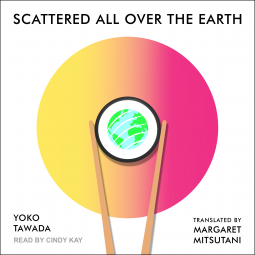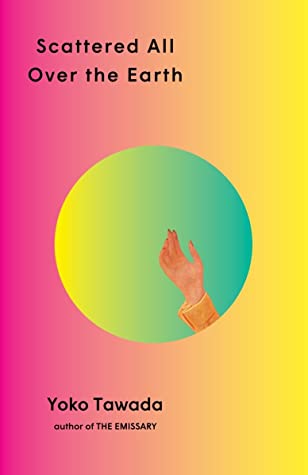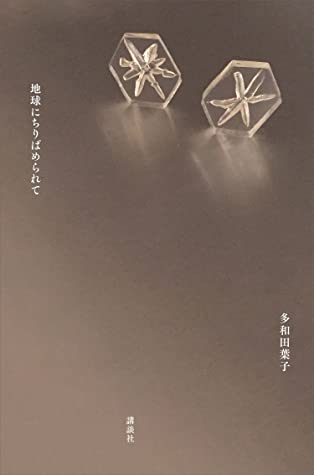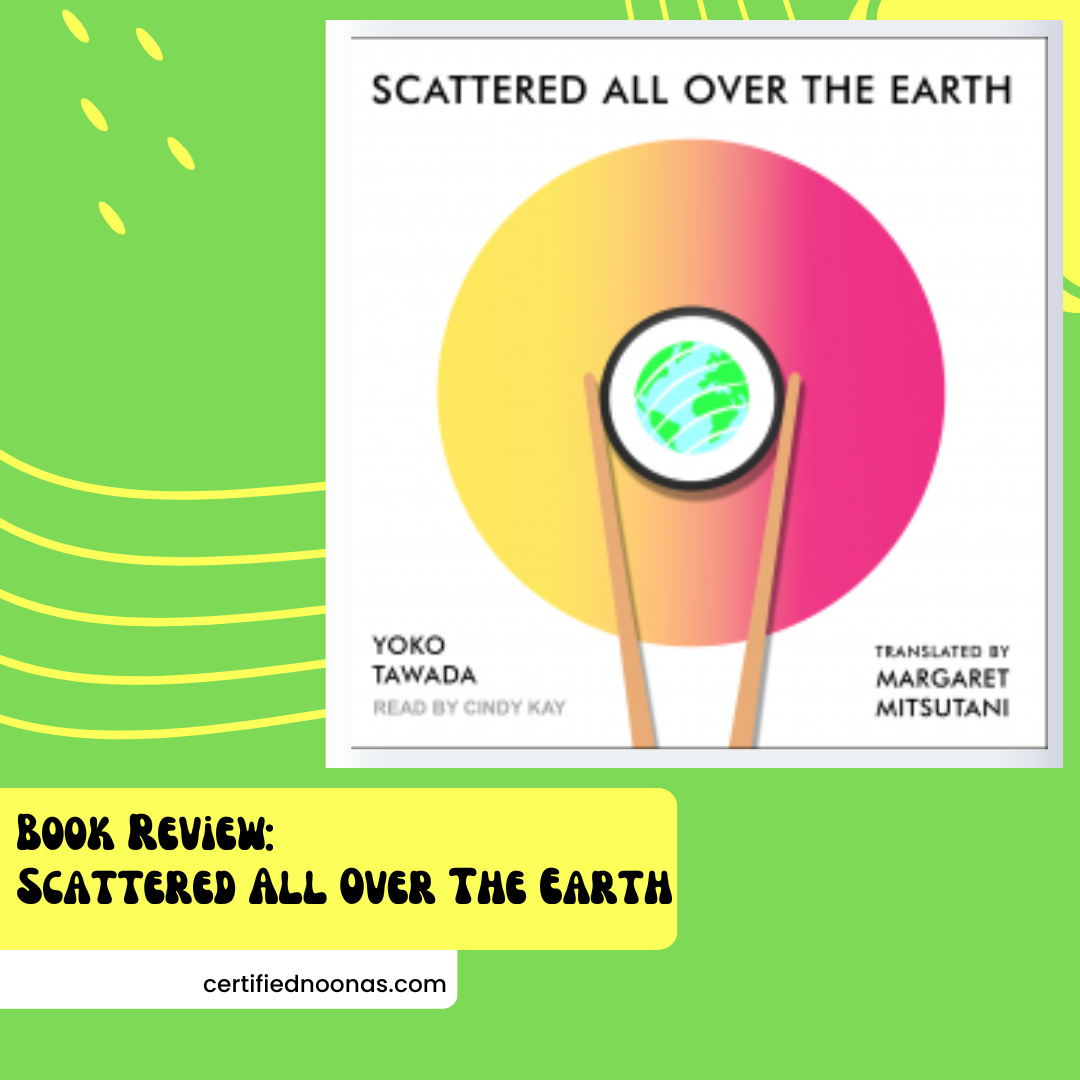Japanese author Yoko Tawada lives in Germany and writes novels in both German and Japanese. One of her Japanese novels, Scattered All Over The Earth, has recently been translated into English. I had the opportunity to listen to the audio version of the book and I’m really glad I did.

Scattered All Over The Earth tells the tale of a Japanese woman, Hiruko, living in Europe after a natural disaster has completely destroyed the islands of Japan. The book is set in the not too distant future. Far enough out to be different, not so far as to be unrecognizable. The most unusual thing for me in reading this book, is that Japan has only been gone for a few years, but nobody remembers its name or even that it existed at all. Many Danish people believe that they invented sushi. There are no Japanese communities around Europe. There is apparently no Google Translate or Duolingo for the Japanese language anymore. We learn at one point that all of the Japanese culture and language websites have begun to disappear from the internet. The idea that a country could completely disappear and less than a decade later it would be totally forgotten is intriguing. It seems impossible, but I see how short our collective memories are over things that happened only a year or two ago, and suddenly it doesn’t seem so far-fetched.
Hiruko has developed her own language in order to communicate with those around her. She appears on television and a young linguist becomes intrigued with this language that he has never heard before but can fully understand. He calls the television station hoping to meet with Hiruko. The two immediately connect over their love of languages. They embark on a journey to find a sushi chef who just might be from Hiruko’s homeland. She longs to speak Japanese with another person again. They travel to Germany and Norway and France, collecting a unique group of friends along the way.
The book tells the story from all the different characters’ perspectives. It is almost like reading a book of short stories that are threaded together. In the middle of the chapter from the sushi chef’s perspective, I had a huge “a-ha moment” when I realized how he related back to something we had learned way back in the first chapter. It was really interesting the way all these seemingly unrelated characters were actually more connected that it initially seemed. I really enjoyed the way Yoko Tawada wove all her story threads together. This book is apparently the first in a trilogy and I am very curious where the story will go from where this book ended. I wonder if the same characters will appear at all, or if we will be given a whole new batch of characters in each book with perhaps all of their stories weaving together for some sort of grand finale.
It was interesting for me to learn that the author is currently living in Germany and writes novels in German as well. My experience with translated German novels is similar to my experience with translated Japanese works. I haven’t read many, but the ones I have read (such as The Memory Police, The Trial, and The Tin Drum) all have a similar vibe to them somehow. The stories are weird, the characters are unusual, and there is just something sort of not quite right that puts me on edge. It’s not a bad thing, just a weird one. Of those books mentioned, I found Scattered All Over The Earth to be the most truly enjoyable read. The odd edge was softer. I still worried that there would be a stressful or unsatisfying ending, but the unease wasn’t as pervasive as it was with something like The Memory Police or The Trial. I wonder if the similarity I feel is simply because the novels that we tend to translate into English are more often the “high art” novels rather than those of the “trashy dime store” variety? These are not the types of English books that I generally search out on my own. Even if that is part of the reason for the similar vibe that I get, I have read translated works from several other countries, and none of them have given me quite the same feeling while reading them.


Overall, I found Scattered All Over the Earth to be a very enjoyable read. The audio version was a bit hard to follow at time because it wasn’t always totally clear to me when the perspective had changed. The narrator didn’t attempt to create different voices or accents for the different characters, which I was totally fine with. However, it did sometimes mean that I was a paragraph or two into the new chapter before I realized that I was getting somebody else’s viewpoint now. This was just a minor inconvenience though, and it was easily and quickly overcome. I’ve seen some reviews that said nothing really happens in the book. To me it felt sort of like a typical slice of life Japanese drama where there is no huge plot device, but still a complete story is told. Ultimately, it was a unique experience, and that is not always easy to come by in the literary world.
Interested in hearing my thoughts on some other translated novels that I’ve read? Check out my reviews for Solo Leveling, Strange Beasts of China, or The Wandering Earth.




